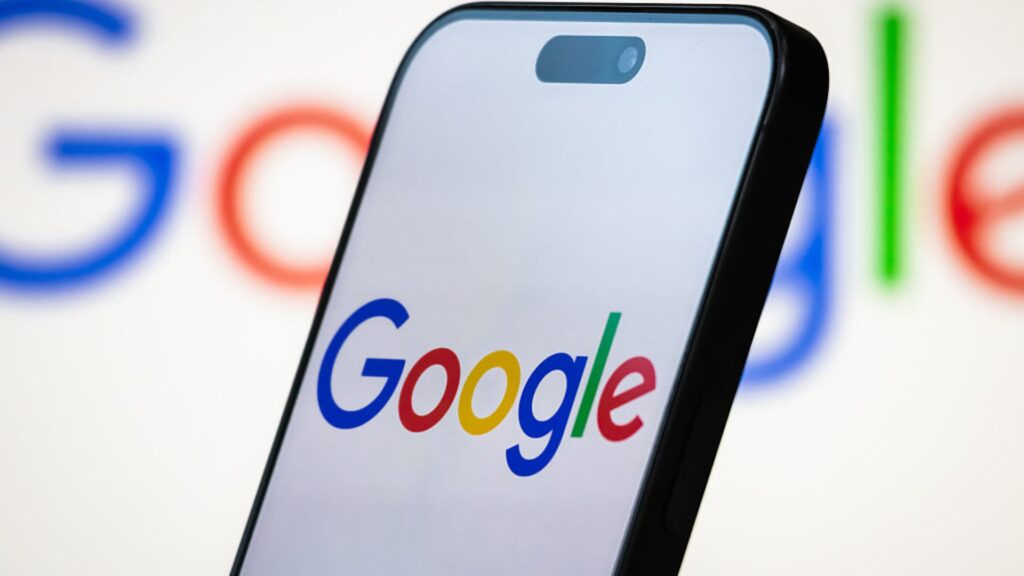On Friday, Google faced a significant setback as the European Union imposed an antitrust fine of 2.95 billion euros (approximately $3.45 billion) on the tech giant for monopolistic practices in its advertising technology sector. The European Commission concluded that Google had engaged in anti-competitive behavior by unfairly favoring its own ad services over those of competitors. This ruling underscores ongoing concerns regarding market monopolies and the potential ramifications for publishers, advertisers, and consumers within the digital economic space.
| Article Subheadings |
|---|
| 1) EU’s Accusation Against Google |
| 2) Google’s Response to the Fine |
| 3) Background of the Case |
| 4) Implications of the Ruling |
| 5) Future Developments |
EU’s Accusation Against Google
The European Commission, the EU’s executive body, explicitly accused Google of distorting market competition through practices that unjustly favored its own advertising technology services. This situation was particularly detrimental to rival adtech providers, advertisers, and online publishers. The Commission stated that Google’s actions created an unlevel playing field that ultimately harmed varied stakeholders in the advertising ecosystem.
EU competition chief, Teresa Ribera, emphasized the severity of Google’s actions. She remarked,
“Today’s decision shows that Google abused its dominant position in adtech harming publishers, advertisers, and consumers. This behavior is illegal under EU antitrust rules.”
This statement stresses the commitment of European regulators to uphold fair competition standards and rectify abuses of power in the marketplace.
Google’s Response to the Fine
In light of the fine, Google’s Global Head of Regulatory Affairs, Lee-Anne Mulholland, argued that the EU’s decision was misguided. Mulholland stated,
“It imposes an unjustified fine and requires changes that will hurt thousands of European businesses by making it harder for them to make money.”
She further contended that the competitive landscape has numerous alternatives to Google’s services, implying that the assertion of their monopolistic conduct is unfounded.
Following the ruling, Google has expressed its intent to appeal against the decision. The technology giant posits that imposing such a significant penalty does more harm than good to the market dynamics and undermines the opportunities for smaller firms in the adtech space.
Background of the Case
The accusations against Google trace back to a formal investigation initiated by the EU in 2021. The investigation aimed to determine whether Google was unfairly favoring its own online display advertising technology at the expense of other providers. The probe scrutinized various operational practices within Google’s ad services that potentially contributed to an anti-competitive environment.
Just before the fine was announced, there were reports indicating that the European Commission had delayed its decision, allegedly to negotiate external factors like the U.S. tariffs on European cars. This context adds another layer of intrigue to the timing of the fine, suggesting that broader geopolitical negotiations may have influenced regulatory actions.
Implications of the Ruling
The ruling against Google stands to have wide-ranging implications not just for the company, but for the entire advertising technology sector. If upheld, the fine may compel Google to modify its operational frameworks significantly to eliminate the favoritism associated with its services.
This move could open avenues for smaller competitors in the adtech market, potentially enhancing innovation and diversity in advertising solutions available to businesses. However, Google warns that such changes may complicate the workings of online advertising, potentially impacting thousands of European businesses that rely on its advertising solutions to generate revenue.
Future Developments
As the situation continues to evolve, the next steps will heavily rely on Google’s formal response to the ruling. The company has a timeline of 60 days to provide a remedy addressing the competitive practices condemned by the EU. Failure to comply may bring about more stringent regulations and possibly additional fines.
Additionally, the outcome of Google’s appeal could set a significant precedent in how similar cases are handled in the future, influencing not just the tech giant but also other players in the industry facing scrutiny from regulators.
| No. | Key Points |
|---|---|
| 1 | Google was fined 2.95 billion euros by the EU for anti-competitive practices. |
| 2 | The EU claims Google’s practices harmed competition in the adtech market. |
| 3 | Google plans to appeal the ruling, arguing it will hurt businesses. |
| 4 | The investigation started in 2021 and revolved around Google’s display advertising services. |
| 5 | The outcome of the case could redefine the future landscape of adtech competition. |
Summary
The recent antitrust ruling against Google highlights the increasing scrutiny that major tech companies face regarding their market practices. The fine and the accusations surrounding it underscore the EU’s commitment to fostering a balanced competitive landscape in digital markets. The further developments in this case will undoubtedly have lasting impacts on Google’s operations and the broader advertising technology industry in Europe.
Frequently Asked Questions
Question: What is the primary reason for Google’s antitrust fine?
Google was fined primarily for anti-competitive practices that favored its own advertising technology services over those of competitors, distorting fair market competition.
Question: Who issued the antitrust fine against Google?
The antitrust fine was issued by the European Commission, which is the executive body of the European Union responsible for enforcing antitrust laws among its member states.
Question: What are the potential consequences if Google does not comply with the EU’s ruling?
If Google fails to comply with the EU’s ruling, it may face additional sanctions, stricter regulations, and further financial penalties as regulators continue to uphold fair competition standards in the market.
